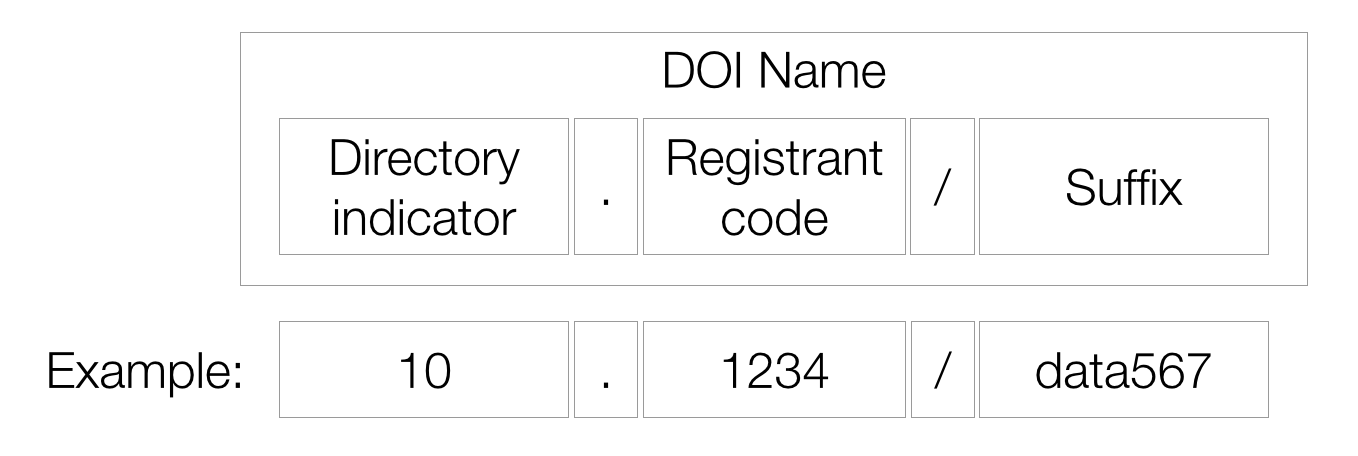What is a DOI?
DOI - Digital Object Identifier
DOI is an acronym for "digital object identifier", meaning a "digital identifier of an object". A DOI name is an identifier (not a location) of an entity on digital networks. It provides a system for persistent and actionable identification and interoperable exchange of managed information on digital networks. A DOI name can be assigned to any entity — physical, digital or abstract — primarily for sharing with an interested user community or managing as intellectual property. The DOI system is designed for interoperability; that is to use, or work with, existing identifier and metadata schemes. DOI names may also be expressed as URLs (URIs).
DOIs are an example of Persistent Identifiers (PIDs).
DOIs have been adopted by the scholarly communication community as, almost, the 'default' identifier for publications. In the last years, they have been adopted as identifiers for data publication, enabling data citation and reuse.
Crossref and DataCite are the main organisations assigning DOIs for scholarly communication.

External information
Official DOI Handbook.
The ANDS guide to DOIs covers this topic in detail.
DOIs on wikipedia.
Updated less than a minute ago
